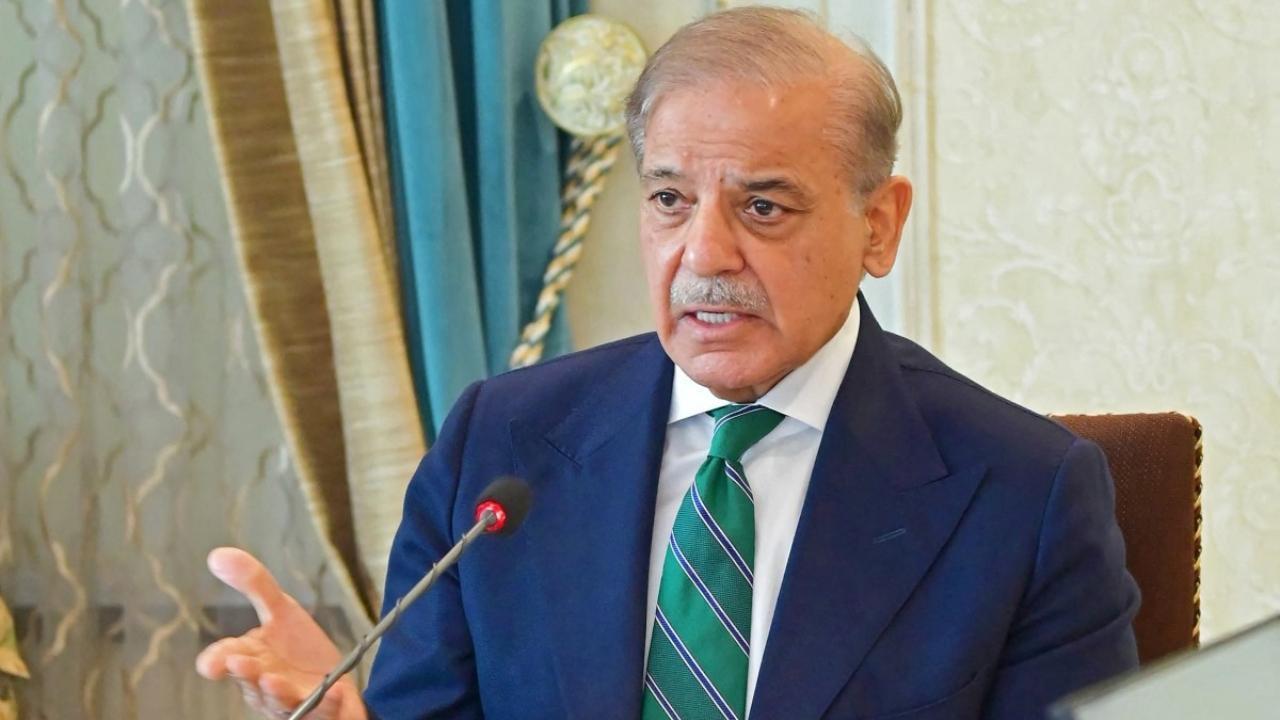World
Trump Hosts Pakistan’s Sharif for Talks Amid Shifting Alliances

President Donald Trump welcomed Pakistani Prime Minister Shehbaz Sharif to the White House, marking a significant moment in the evolving relationship between the United States and Pakistan. This meeting took place against the backdrop of recent discussions at the UN General Assembly, where Sharif was among leaders from eight Muslim-majority nations focused on strategies to address the ongoing conflict between Israel and Hamas.
Ties between the US and Pakistan have notably improved, particularly as Trump’s rapport with Indian Prime Minister Narendra Modi has encountered challenges. Modi’s government has increased its purchases of discounted Russian oil following the invasion of Ukraine in February 2022, leading to strained relations with Washington. In response, Trump imposed tariffs of up to 50 percent on certain imports from India, aiming to exert economic pressure on Moscow indirectly.
Strategic Discussions and Economic Developments
The meeting between Trump and Sharif occurred shortly before 17:00 on a Thursday, coinciding with Trump’s signing of executive orders and interactions with the press. The discussions were closed to media coverage, and the Pakistani delegation departed the White House around 18:18. Sharif’s public support for Trump’s nomination for a Nobel Peace Prize for his efforts in reducing tensions between Pakistan and India has reportedly strengthened their relationship.
Earlier this year, the two nations reached a trade agreement that is expected to facilitate US assistance in developing Pakistan’s largely untapped oil reserves while reducing tariffs. This agreement reflects a broader effort to stabilize economic ties and enhance cooperation between the two countries.
A ceasefire agreement between India and Pakistan was achieved in May, following intense military confrontations, which included missile and drone strikes. The conflict was exacerbated by a terrorist attack in India, which the Indian government attributed to Pakistan—a claim that Pakistan denies. Unlike Sharif, Modi has not publicly supported Trump’s narrative regarding the ceasefire, which was brokered through US-led negotiations.
Shifting Dynamics in Regional Politics
The geopolitical landscape is further complicated by Modi’s recent engagements with global leaders such as Vladimir Putin and Xi Jinping during a security summit in China. In response, Trump expressed his concerns on social media, stating, “Looks like we’ve lost India and Russia to deepest, darkest, China.” Despite these tensions, Trump has recently signaled a willingness to rekindle positive trade relations with India, announcing ongoing negotiations to address trade barriers.
The evolving dynamics between the US, India, and Pakistan reflect a complex interplay of strategic interests and regional politics. As these relationships develop, both Sharif and Trump appear committed to finding common ground, particularly in economic and security matters.
In summary, the meeting between Trump and Sharif is emblematic of the shifting alliances in South Asia and the broader implications for US foreign policy in the region. As both leaders navigate their respective challenges, the focus remains on fostering cooperation and stability amidst a backdrop of geopolitical uncertainty.
-

 World5 months ago
World5 months agoSBI Announces QIP Floor Price at ₹811.05 Per Share
-

 Lifestyle5 months ago
Lifestyle5 months agoCept Unveils ₹3.1 Crore Urban Mobility Plan for Sustainable Growth
-

 Science4 months ago
Science4 months agoNew Blood Group Discovered in South Indian Woman at Rotary Centre
-

 World5 months ago
World5 months agoTorrential Rains Cause Flash Flooding in New York and New Jersey
-

 Top Stories5 months ago
Top Stories5 months agoKonkani Cultural Organisation to Host Pearl Jubilee in Abu Dhabi
-

 Sports4 months ago
Sports4 months agoBroad Advocates for Bowling Change Ahead of Final Test Against India
-

 Science5 months ago
Science5 months agoNothing Headphone 1 Review: A Bold Contender in Audio Design
-

 Top Stories5 months ago
Top Stories5 months agoAir India Crash Investigation Highlights Boeing Fuel Switch Concerns
-

 Business5 months ago
Business5 months agoIndian Stock Market Rebounds: Sensex and Nifty Rise After Four-Day Decline
-

 Sports4 months ago
Sports4 months agoCristian Totti Retires at 19: Pressure of Fame Takes Toll
-

 Politics5 months ago
Politics5 months agoAbandoned Doberman Finds New Home After Journey to Prague
-

 Top Stories5 months ago
Top Stories5 months agoPatna Bank Manager Abhishek Varun Found Dead in Well









